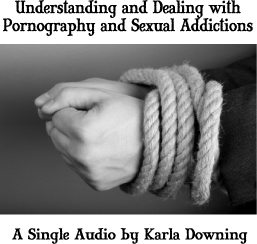Christian Relationship Help: Christian Codependency
 Christian codependency is defined as a way of living in which a Christian puts more focus on other people than on themselves, for unhealthy reasons, while believing that God approves. When you are codependent, your way of responding to life and relationships includes not focusing on your own life and overly focusing on others’ lives. Many codependent people never learned how to be a healthy, separate child, due to a dysfunctional home and/or trauma. Or perhaps you lost your healthy balance by being in a relationship with a dysfunctional person. You can be codependent in all your relationships or just one. You can also be codependent in your work and ministry by being unable to say no, by overworking, and by continually putting others before yourself and your family. Codependents are confused about how to love, how to let go, how to say no, how to be separate while connected, and how to please God in their relationships.
Christian codependency is defined as a way of living in which a Christian puts more focus on other people than on themselves, for unhealthy reasons, while believing that God approves. When you are codependent, your way of responding to life and relationships includes not focusing on your own life and overly focusing on others’ lives. Many codependent people never learned how to be a healthy, separate child, due to a dysfunctional home and/or trauma. Or perhaps you lost your healthy balance by being in a relationship with a dysfunctional person. You can be codependent in all your relationships or just one. You can also be codependent in your work and ministry by being unable to say no, by overworking, and by continually putting others before yourself and your family. Codependents are confused about how to love, how to let go, how to say no, how to be separate while connected, and how to please God in their relationships.
Some people dislike the label of codependency, but it is helpful to know whether your behavior fits a pattern so you can address the underlying issues and make healthy changes in your life.
When people are “codependent” in their personal relationships, it means they have an unhealthy way of reacting to other people. Some describe codependency as an addiction to another person. It can also be a hyper-focus on another person due to emptiness and feeling out of control. Or a codependent person can be someone who has not learned how to have a healthy self in a relationship due to low self-esteem and poor boundaries.
Here are some of the characteristics of codependents in their relationships:
- They take better care of other people than themselves.
- They obsess over the other person by thinking about them, feeling anxious, and checking up on them.
- They know more about others’ feelings, thoughts, likes, and dislikes than they know about their own.
- They feel guilty and responsible for others and their behavior.
- They change themselves, hoping other people will also change.
- They feel stuck and victimized.
- They try to fix and control people, places, and things.
- They have difficulty knowing what their boundaries should be.
- They have difficulty saying no without feeling guilty.
- They lose track of themselves: their needs, goals, likes, and wants.
- They feel bad about themselves.
- They allow themselves to be manipulated and controlled by others.
- They lie about or cover up others’ mistakes.
- They don’t trust their decisions and feelings.
- They people-please because they fear rejection and desperately need approval.
- They know what everyone should do—except themselves.
People can also be codependent in their work and ministry, resulting in unhealthy priorities that negatively affect not only themselves but also their other relationships. Here are some characteristics of codependents at work:
- They feel inadequate no matter how good a job they are doing.
- They have difficulty accepting constructive criticism because they feel rejected and take it personally.
- They take on co-workers’ work that is not their responsibility.
- They work too much without asking for help or extra compensation.
- They have difficulty being assertive with their co-workers and supervisors.
- They don’t say no when they should take care of themselves or their families instead.
- They need to feel accepted and liked by everyone, so they people-please in order to fit in.
- They feel responsible for other people’s moods and problems.
- They try to keep everything working well so no one gets in trouble for not doing what they should be doing.
- They feel a responsibility to listen to and solve people’s personal problems.
- They feel powerless and stuck and afraid to make other choices.
Codependency affects how people work, how they feel about their work, and how they allow others to treat them at work. Since people spend a considerable amount of time at work and/or in ministry, their lives are affected by the choices they make. It is important to treat the underlying roots of work problems.
Christian codependency is based on the belief that God approves of and prefers codependent behaviors. Here are the main misbeliefs that drive Christian codependency:
- God wants you to give without limits.
- God wants you always to put others before yourself.
- God wants you to deny yourself in your relationships.
- God wants you to ignore your needs.
- God wants you to work to win his favor.
- God wants you to take responsibility for other people.
In order to overcome Christian codependency, you need to correct the misbeliefs, work on developing a strong self, and learn how to balance your needs with the needs of others. Christian codependency isn’t pleasing to God; healthy relationships and healthy living are.
Articles on Christian Codependency
Are You a Codependent? Take this quiz to find out…
How Not to Lose Yourself in a Relationship
Click here for information on Christian Twelve Step Recovery…
 Working the Twelve Steps: A Pathway to Healing and Restoration Audio Study
Working the Twelve Steps: A Pathway to Healing and Restoration Audio Study 10 Lifesaving Principles for Women in Difficult Marriages
10 Lifesaving Principles for Women in Difficult Marriages Living and Thriving in a Not-So-Perfect Marriage Audio Study
Living and Thriving in a Not-So-Perfect Marriage Audio Study When Love Hurts: 10 Principles to Transform Difficult Relationships
When Love Hurts: 10 Principles to Transform Difficult Relationships Transforming Difficult Relationships Audio Study
Transforming Difficult Relationships Audio Study Boundaries with Adult Children and Rebellious Teens: A Biblical and Practical Guide on What to Do and What Not to Do
Boundaries with Adult Children and Rebellious Teens: A Biblical and Practical Guide on What to Do and What Not to Do Understanding and Dealing with Pornography and Sexual Addiction Audio
Understanding and Dealing with Pornography and Sexual Addiction Audio










